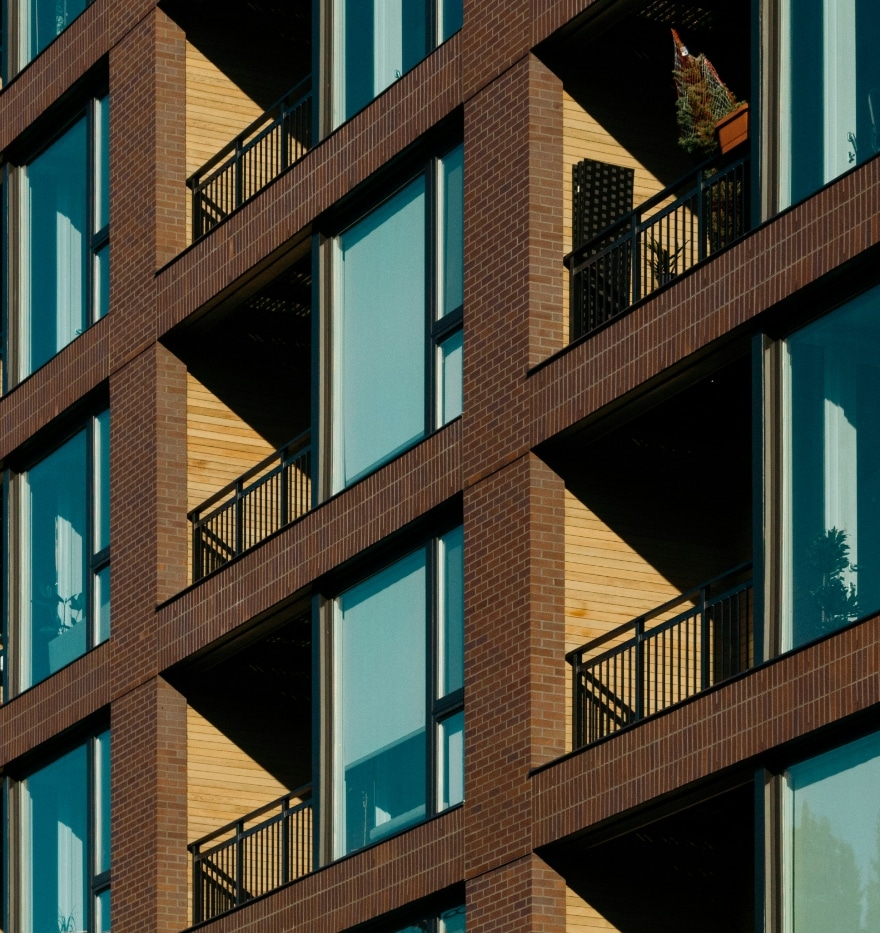Whats on this page:
Office Hours: Monday to Friday - 09:00 to 16:45

What is a HMO?
A HMO, also known as a House in Multiple Occupation, refers to a property rented out to at least three or more tenants who form more than one household and share common amenities such as a kitchen, bathroom, or living area. These types of properties can vary widely, including houses, flats, and bedsits.
Understanding the definition of an HMO is important due to regulatory requirements for landlords, as well as the need for specialised HMO landlord insurance.
What is HMO landlord insurance?
HMO landlord insurance is a specific insurance product that has been designed to protect landlords who rent out properties to multiple tenants under a HMO arrangement.
Unlike standard landlord insurance, HMO insurance recognises the increased risks associated when having multiple, unrelated tenants in a single property.
What does HMO landlord insurance cover?
HMO insurance can offer a variety of coverage options for your rental, typically including:
Buildings insurance: This covers the cost of repairing or rebuilding the structure of your property in the event of damage from insured perils like fire, flood, storms, vandalism, or subsidence.
Contents insurance: If you provide furniture, fixtures, or fittings within the HMO, contents insurance protects these items against damage or theft. This can be particularly important in HMOs where communal areas are furnished.
Property owners’ liability insurance: This coverage is vital for HMO landlords. It protects you against legal costs and compensation claims if a tenant or visitor sustains an injury on your property due to your negligence.
Loss of rent insurance: If your HMO becomes uninhabitable due to an insured event (such as a fire or flood), loss of rent insurance can cover the rental income you lose during the period it takes to repair or rebuild the property.
Alternative accommodation: Some policies may also cover the cost of providing alternative accommodation for your tenants if the property becomes uninhabitable.
It’s important to be aware that the specific coverage can vary between insurers, so it’s really important to carefully review your policy documents so you understand exactly what is covered.

What doesn’t HMO insurance cover?
While HMO insurance provides extensive protection, it’s important to be aware of what it typically doesn’t cover:
General wear and tear: Insurance policies generally don’t cover damage that occurs due to normal wear and tear over time.
Tenant’s belongings: The tenant’s personal possessions are their responsibility to insure, not the landlord’s.
Pre-existing conditions: Damage or issues that existed before the policy began are usually excluded.
Faulty workmanship: Damage caused by poor construction or faulty repairs may not be covered.
How much does HMO landlord insurance cost?
The exact cost of HMO landlord insurance is hard to pin point exactly due to the varying factors that can largely deviate the associated costs. These factors include:
Property size and type: Larger HMOs can result in higher costs.
Property type: Those with more complex layouts may have higher premiums.
Number of tenants: The more tenants, the potentially higher the risk, and therefore the cost.
Location: Properties in areas with higher crime rates or a history of flooding could incur higher premiums.
Level of coverage: The more comprehensive the coverage, the higher the cost.
Additional features in the policy: Optional extras such as rent guarantee or legal expense cover can increase the overall premium.
The most accurate way to get an idea of the cost of HMO landlord insurance is to obtain quotes from different providers and understand the coverage level of each.
Frequently Asked Questions - HMO Insurance
In the United Kingdom, many HMOs require a licence from the local council. The specific licensing requirements vary depending on the local authority and the size and type of HMO.
A House in Multiple Occupation (HMO) typically requires a license if it houses five or more tenants from more than one household who share amenities.
Landlords are responsible for checking licensing requirements with the local council, and failure to obtain the necessary license can lead to substantial penalties.
Although HMO insurance is not a legal requirement in the same way that car insurance is, it is strongly recommended for landlords. It protects your investment and provides financial security against unexpected events. In addition to this, mortgage lenders will often require property insurance as a condition of the mortgage for any HMOs.
The claims process for a HMO insurance policy will generally involve the following steps:
- Notify your insurer: Contact your insurance provider as soon as possible after the incident occurs.
- Provide detailed information: Give a full description of the event.
- Gather evidence: Collect supporting evidence, such as photographs, videos, police reports, or repair estimates.
- Follow insurer instructions: Cooperate with your insurer and provide any additional information that they request.
It is recommended that you refer to your specific policy documents for the exact claims process for your HMO landlord cover.
HMO landlord insurance can cover loss of rent, but this is typically an optional add-on and will increase the policy’s premium. Always check your specific policy documents to see if loss of rent cover is included in your agreement.
Our Landlord Insurance Products

Buy-to-Let Landlord Insurance
Buy-to-let landlord insurance is designed to offer protection for your rental property that goes beyond basic home insurance.
HMO Insurance
HMO landlord insurance has been designed to protect landlords who rent out properties to multiple tenants under a HMO arrangement.
Commercial Landlord insurance
Commercial landlord insurance is a type of cover that protects a property owner who rents out their premises to a business.
DSS Landlord Insurance
If you own a property and rent it to a tenant who receives benefits, such as Universal Credit or Housing Benefit, the policy you need is often known as a DSS landlord insurance.
Landlord Portfolio Insurance
Landlord Portfolio insurance is a single insurance policy providing specialist cover for multiple buy-to-let properties.
Student Landlord Insurance
Renting a property to students requires a specific type of insurance. It is a specialist policy designed to cover the unique risks associated with letting properties to students, due to the associated higher risks such as accidental or malicious damage along with the potential for a higher tenant turnover.
Holiday Home Insurance
If you own a second property that you use for leisure or rent out to holidaymakers, it is important to have specialist holiday home insurance.